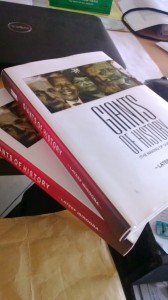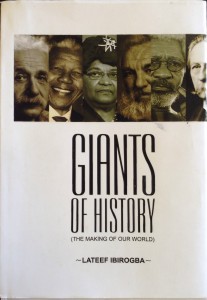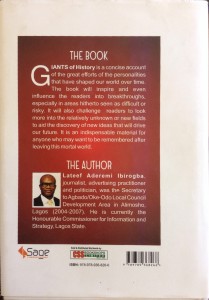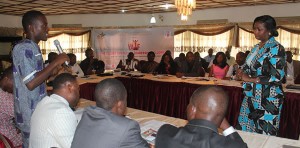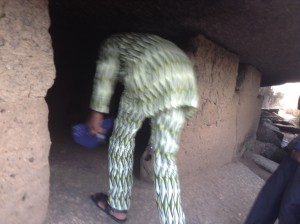
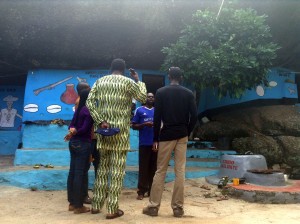 In continuation of earlier curiosities about ancient towns, with a particular interest in tall structures overlooking large expanses of land, and pursuit of childhood towns/homes of famous and notable citizens of the world, I returned to Abeokuta yesterday for a solo exploration. “Return” is an appropriate word only because two earlier attempts have been too brief to have allowed a worthwhile independent expedition. On the last trip, I was the guardian of a group of students attending a literary festival.
In continuation of earlier curiosities about ancient towns, with a particular interest in tall structures overlooking large expanses of land, and pursuit of childhood towns/homes of famous and notable citizens of the world, I returned to Abeokuta yesterday for a solo exploration. “Return” is an appropriate word only because two earlier attempts have been too brief to have allowed a worthwhile independent expedition. On the last trip, I was the guardian of a group of students attending a literary festival.
By the end of this particular trip, which lasted a few minutes shy of ten hours, what became clear was the limit of even this independent attempt not backed with the luxury of time and patience. Abeokuta city is about two hours drive (127 km) from Lagos. This leaves a very little window left, insufficient, to say the least, for anyone interested in walking around to the right and notable places that define the town in the eyes of the world. It is for this reason that one NEEDS to be back, this time for a number of days and more.
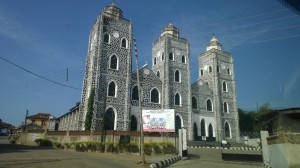
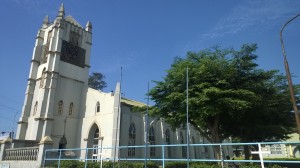 Not bigger, likely, than Washington DC which I however managed to walk around on foot on one notable occasion in 2009, Abeokuta holds its own mysteries. From being the birthplace and/or childhood town of some of Nigeria’s most notable people (the Kutis, the Soyinkas, the Abiolas, the Obasanjos, etc), and for its role in some of the earliest wars that defined Yoruba land, and for its role in Christianity and colonialism in Nigeria, and especially for its famous Olumo Rock and its famous rustic atmosphere that is always a welcome respite from the bustle of big cities like Lagos, a third and even fourth visit is always going to be worth it. And except for the raging sun that mandates constant re-hydration at every point in the trip, and may pose a challenge for someone visiting with wife and kid as this next one is intended, another shot at deciphering its ancient puzzles should yield even deeper pleasures.
Not bigger, likely, than Washington DC which I however managed to walk around on foot on one notable occasion in 2009, Abeokuta holds its own mysteries. From being the birthplace and/or childhood town of some of Nigeria’s most notable people (the Kutis, the Soyinkas, the Abiolas, the Obasanjos, etc), and for its role in some of the earliest wars that defined Yoruba land, and for its role in Christianity and colonialism in Nigeria, and especially for its famous Olumo Rock and its famous rustic atmosphere that is always a welcome respite from the bustle of big cities like Lagos, a third and even fourth visit is always going to be worth it. And except for the raging sun that mandates constant re-hydration at every point in the trip, and may pose a challenge for someone visiting with wife and kid as this next one is intended, another shot at deciphering its ancient puzzles should yield even deeper pleasures.
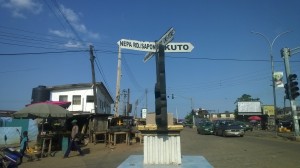
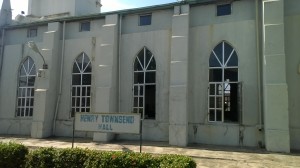 Notable sites visited this time include the famous Olumo Rock which plays an important role in the founding of the city (more on this later), and in the wars that defined its history; the Centenary hall built in 1930 by the colonial administration; the famous Cathedral of St. Peter’s in Ake (the first missionary church in Nigeria) with a hall named after Henry Townsend; and, finally, the traditional palace of the Alake of Egbaland – a paramount king; among others. From on top of the rock, a number of other sites of attraction can be seen: the family houses of Chief MKO Abiola (winner of Nigeria’s 1993 presidential elections), the first mosque in the city, the River Ogun from where the state got its name, and the first television station in the state.
Notable sites visited this time include the famous Olumo Rock which plays an important role in the founding of the city (more on this later), and in the wars that defined its history; the Centenary hall built in 1930 by the colonial administration; the famous Cathedral of St. Peter’s in Ake (the first missionary church in Nigeria) with a hall named after Henry Townsend; and, finally, the traditional palace of the Alake of Egbaland – a paramount king; among others. From on top of the rock, a number of other sites of attraction can be seen: the family houses of Chief MKO Abiola (winner of Nigeria’s 1993 presidential elections), the first mosque in the city, the River Ogun from where the state got its name, and the first television station in the state.
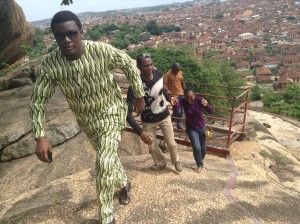
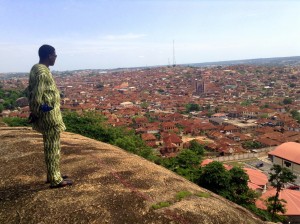 Much as I tried – and I didn’t try much because of the limits of time – I couldn’t locate Wole Soyinka’s childhood home this time, reputed to be located somewhere close to the St. Peter’s Church. For the next trip, deserving of particular attention to this important landmark, I’m heading back into the first chapters of the writer’s 1981 autobiography in which he described proximate locations around his parents house in Ake. The challenge will be to translate geography embellished in fiction into a real life quest in the “sprawling undulating terrain” of the rustic town. Challenge accepted.
Much as I tried – and I didn’t try much because of the limits of time – I couldn’t locate Wole Soyinka’s childhood home this time, reputed to be located somewhere close to the St. Peter’s Church. For the next trip, deserving of particular attention to this important landmark, I’m heading back into the first chapters of the writer’s 1981 autobiography in which he described proximate locations around his parents house in Ake. The challenge will be to translate geography embellished in fiction into a real life quest in the “sprawling undulating terrain” of the rustic town. Challenge accepted.
More later. And pictures.
